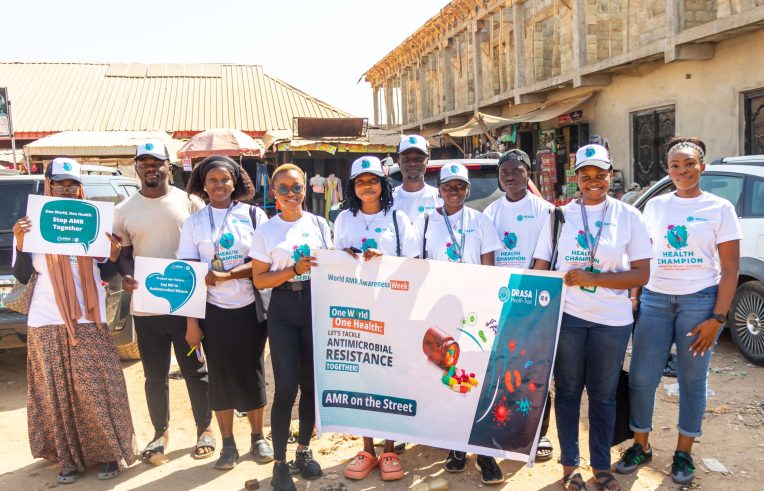Antimicrobial resistance (AMR) is a public health threat that compromises the effectiveness of antimicrobial drugs, rendering them almost powerless in curing illnesses. The misuse of antimicrobial medications such as antibiotics and antimalarials in Nigeria contributes to an alarming rise in drug-resistant infections, which increases the risk of prolonged illness and even death. Despite its severity, public awareness of AMR remains low. The average Nigerian is unaware of the significant risks that linger if it is not addressed on time.
Recognising the need for public awareness as a key objective in Nigeria’s National Action Plan on Antimicrobial Resistance 2.0 (NAP 2.0), we explored a unique and dynamic approach to educate and reach thousands about AMR through an “AMR on the Street” Campaign.
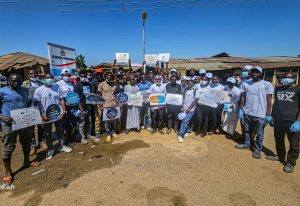
Engaging university-led AMR Clubs
The AMR on the Street (AMRotS) campaign is designed to raise public awareness among diverse audiences by engaging individuals in everyday settings such as markets, schools, farms, hospitals, and more. The campaign was launched during World AMR Awareness Week, which runs from November 18th to 24th, and continued until December 12th, 2024.
Led by DRASA Health Trust, the initiative utilized a network of AMR Intervarsity Clubs at various universities to engage 12 youth-led AMR Clubs from all six geopolitical zones in the country. The selected universities were evaluated based on their feasibility, innovation, outreach potential, alignment with the campaign's objectives, and representation for inclusivity and diversity.
The universities involved in the campaign were Ahmadu Bello University, Delta State University, Enugu State University of Science and Technology, Federal University of Allied Health Sciences, Enugu, Kaduna State University, Obafemi Awolowo University, University of Abuja, University of Calabar, University of Ibadan, University of Ilorin, University of Jos, and University of Maiduguri.
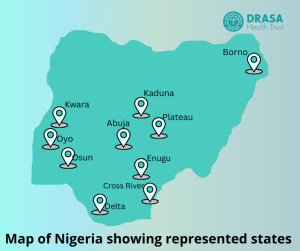
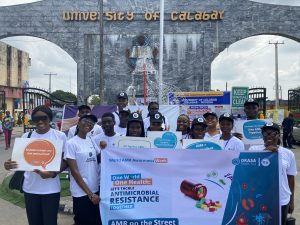
Walking the talk
The creativity and enthusiasm of the students in engaging their audiences were evident. They used various innovative methods to raise awareness and educate community members about AMR including farm visits, campus sensitization, an online social media challenge against AMR, webinars, stakeholder engagement, hospital visits, outreach through TV and radio, online training via WhatsApp, a "Skate Against AMR" event, and awareness walks in the villages surrounding their campuses.
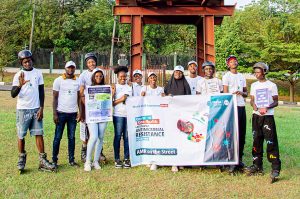
All activities were aimed at promoting positive behaviors towards the use of antimicrobials within their communities and campuses. At the end of their intervention, they reached 29,298 people both online and offline, educating them about AMR. Key highlights include:
- Delta State University: Reached 4,632 people, with 2,155 students educated through school outreaches and 1,945 individuals engaged on campus.
- Federal University of Allied Health Sciences, Enugu: Conducted a community campaign, school outreach, and a radio programme that reached over 10,000 listeners.
- University of Calabar: Organized a social media challenge against AMR that engaged over 9,300 participants online.
- Obafemi Awolowo University: Conducted outreach activities in schools, churches, and public spaces, engaging 965 people.
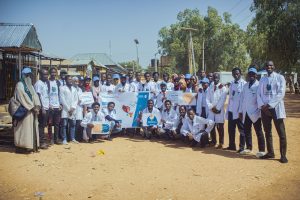
Upscaling the Movement
The model used in the AMRotS campaign demonstrated the significant influence that young people can have on driving change, effectively educating a diverse audience about AMR. As AMR continues to pose a serious threat to public health, community-driven initiatives like AMRotS highlight the importance of grassroots education and advocacy in promoting sustainable behavior change and safeguarding the health of future generations.
DRASA aims to expand this initiative by forming partnerships with more one-health-focused youth-led organizations, incorporating AMR education into school curricula, and utilizing media platforms to reach larger audiences, achieving an even greater impact in Nigeria’s fight against AMR.




